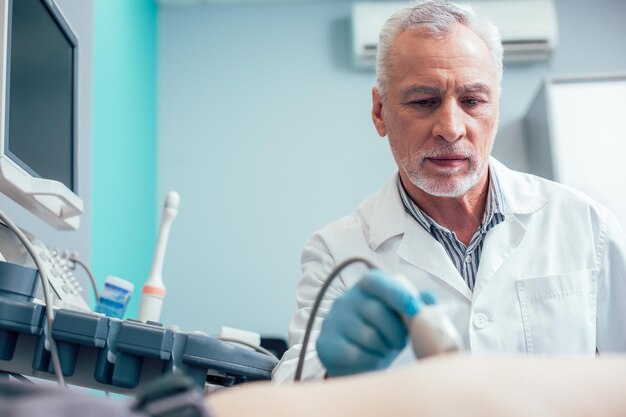Your Guide to Is Colonoscopy Covered By Medicare
What You Get:
Free Guide
Free, helpful information about Medicare Insurance and related Is Colonoscopy Covered By Medicare topics.
Helpful Information
Get clear and easy-to-understand details about Is Colonoscopy Covered By Medicare topics and resources.
Personalized Offers
Answer a few optional questions to receive offers or information related to Medicare Insurance. The survey is optional and not required to access your free guide.
Can Medicare Pay for Your Colonoscopy? Here's What You Need to Know
Navigating the world of healthcare coverage can be daunting, but when it comes to crucial procedures like colonoscopies, understanding your options is vital. If you're approaching the age where routine screenings become necessary or have a family history of colorectal issues, you might find yourself wondering, "Is a colonoscopy covered by Medicare?" The answer is typically yes, but there are nuances to consider.
Medicare Coverage for Colonoscopies
Medicare Part B, which covers outpatient care, preventive services, and medical supplies, generally covers colonoscopy screenings. Here’s a closer look at what that means:
- Preventive Screening Colonoscopy: For those who are at high risk for colorectal cancer, Medicare Part B typically covers this procedure once every 24 months. For those not considered high risk, it is usually covered once every 10 years.
- Diagnostic Colonoscopy: If you’re experiencing symptoms like abdominal pain, bleeding, or a change in bowel habits, a diagnostic colonoscopy may be warranted. Medicare covers this diagnostic service, but unlike preventive screenings, you may be responsible for certain costs like co-payments and the Part B deductible.
Understanding Costs with Medicare
While Medicare covers a significant portion of colonoscopy costs, beneficiaries might still encounter some out-of-pocket expenses:
- Cost-Share: Even for preventive screenings, if a polyp is found and removed during the procedure, Medicare covers 80% of the costs post-deductible. You will be responsible for the remaining 20%.
- Ambulatory Surgery Center or Hospital: Where you receive your colonoscopy can affect your out-of-pocket costs, particularly for diagnostic procedures.
Ways to Offset Your Healthcare Costs
Government Aid Programs:
- Medicaid: Check if you're eligible for dual enrollment in Medicare and Medicaid for additional help. Medicaid can cover expenses Medicare doesn't.
Financial Assistance:
- Medical Financial Aid: Some hospitals offer financial aid for low-income patients. Inquire about programs at facilities where you receive care.
Exploring Debt Relief Options:
- Medical Credit Cards or Loans: If you're facing high medical bills, consider options like medical credit cards, which offer payment flexibility for healthcare expenses.
Educational Grants and Resources: Understanding and navigating healthcare can be complex. Seek educational resources that can simplify these aspects:
- Senior Centers or Medicare Seminar Events: Look for informational sessions that provide guidance on maximizing your benefits.
- Online Courses: Websites offer free courses on financial planning, which can be beneficial for managing medical finances.
Be proactive and explore these avenues to optimize your healthcare financing and make informed decisions about your well-being.
Useful Resources for Financial Assistance and Education:
- 💳 Medical Credit Cards: Pay for out-of-pocket medical expenses over time.
- 🏥 Hospital Financial Aid Programs: Assistance based on income levels.
- 🎓 Online Learning Platforms: Free courses in financial planning and healthcare management.
- 📚 Local Community Workshops: Learn more about maximizing benefits and aid eligibility.
- 🏦 Medicaid and Dual Eligibility: Explore additional state-level healthcare support if eligible.
What You Get:
Free Medicare Insurance Guide
Free, helpful information about Is Colonoscopy Covered By Medicare and related resources.

Helpful Information
Get clear, easy-to-understand details about Is Colonoscopy Covered By Medicare topics.

Optional Personalized Offers
Answer a few optional questions to see offers or information related to Medicare Insurance. Participation is not required to get your free guide.


Discover More
- Am I Elgible For Medicare
- Am I Enrolled In Medicare
- Am I Qualified For Medicare
- Are Adult Diapers Covered By Medicare
- Are Chemotherapy Drugs Covered By Medicare Part d
- Are Colonoscopies Covered By Medicare
- Are Covid Tests Covered By Medicare
- Are Cpap Machines Covered By Medicare
- Are Cpap Supplies Covered By Medicare
- Are Dental Implants Covered By Medicare
